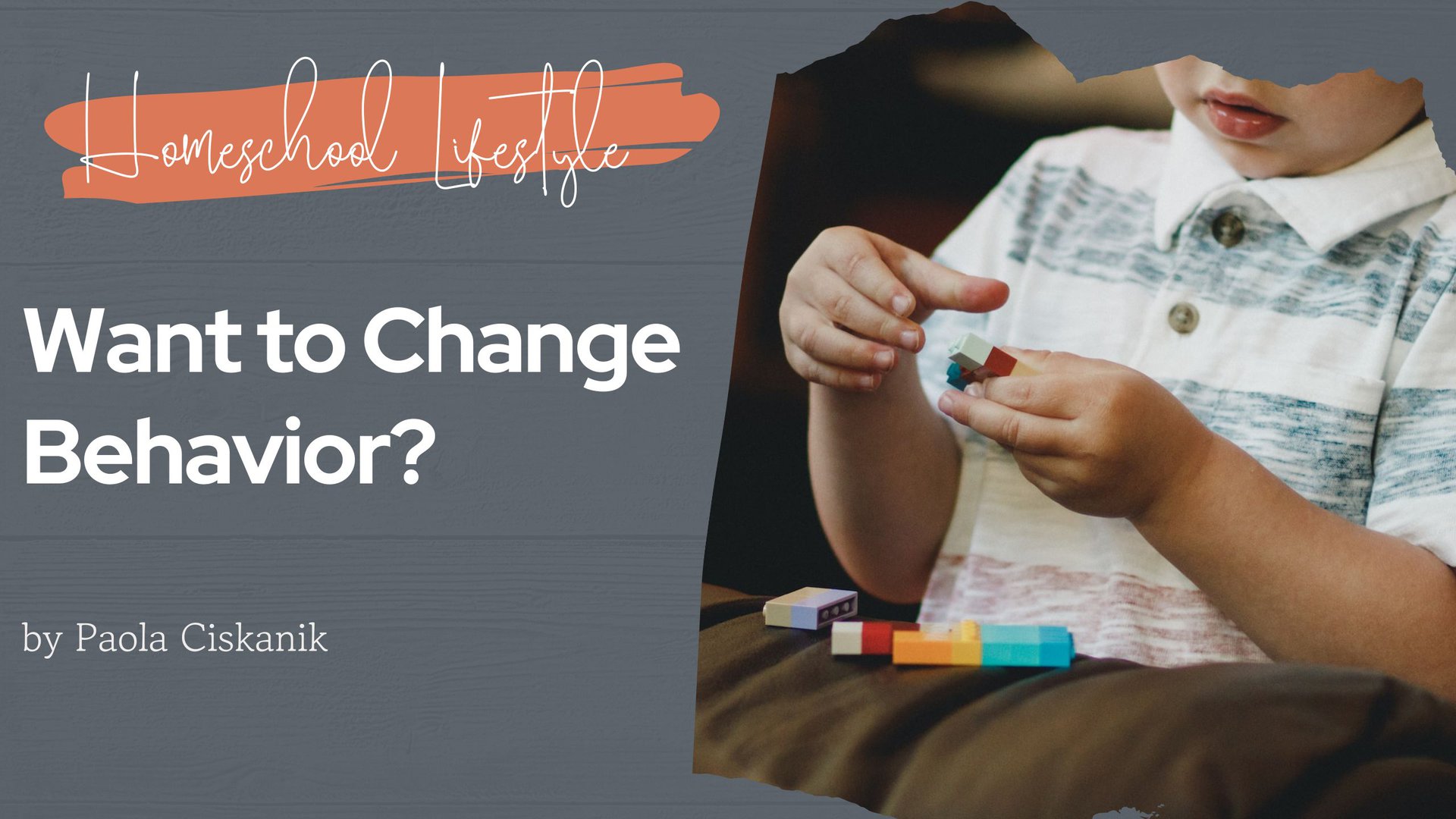Recently the topic of changing behaviors came up.
For example, you have a child who constantly daydreams or dawdles instead of doing their required assignments.
What is a parent to do?
We had such a fruitful discussion, I thought I would share some of what we discussed and have added a few concrete experiences I have on the subject.
Firstly, understand that behaviors require three things:
- Motivation
- Ability
- Triggers or Prompts
Most people go to motivations first. They determine if the child is a carrot or stick, reward or consequence, type of person to get them to change their behavior. So they come up with rewards, prize boxes, or time outs, extra worksheets.
And while that is a good place to start it is often tied up with a bunch of emotionality and at best can be unreliable and unsustainable too.
It is good to think about what motivates your child, either internally or externally, such as curiosity, mastery, interests, independence, etc. You get the picture.
But the better place to start is ABILITY.
What do I mean by ability? Well the physical, mental, time, and experience it takes to accomplish that desired behavior.
Ask instead WHY is it hard for that particular child to accomplish said behavior or task?
Here is some specific things to ask because Ability falls into a few specific categories:
- Time – do they have enough time for the task, do they have trouble moderating time, maybe a just simple timer can help.
- Perhaps it is lack of resources – the child may need extra tools to accomplish the task, even a better pen or paper or even better lighting can make a world of difference.
- Physical Effort – this task requires effort beyond their capability, they may need extra one on one time with you. Or there may truly be is a physical limitation, like having eye focusing difficulty. Rule out if the task is truly laborious due to physical issues.
- Mental effort – you know your child, trust that. You know if they are having a confidence issue or are being asked to do work beyond their natural stage of development. Perhaps they are worried about their performance or getting things perfect the first time. This requires taking time to help them develop healthy self-talk, and time being present for them, assuring them you have their back,
- Is it actually hard to fit into an overloaded and too busy day? Did you double book? Are they distracted by too much activity in the home, outside the home? We all have a set internal clock of focus time, determine a reasonable time for each task you assign. Or chunk the task down into smaller sessions and assignments.
Lastly, remember nothing like behaviors, happen without some sort of trigger or prompt.
The easiest way to truly actualize a behavior change is to “hook it into something you already do.”
So if your child is habitually daydreaming, and dawdling with their assignments, you have looked at their motivations, and ability, follow-up with some sort of trigger to help them succeed.
Doing a new behavior consistently happens when we add it to our already ingrained habits.
So perhaps, if your daily routine is to say morning prayers together, make the new behavior, their assignment or task, happen right after you say your last Amen together.


Very true and clearly explained!